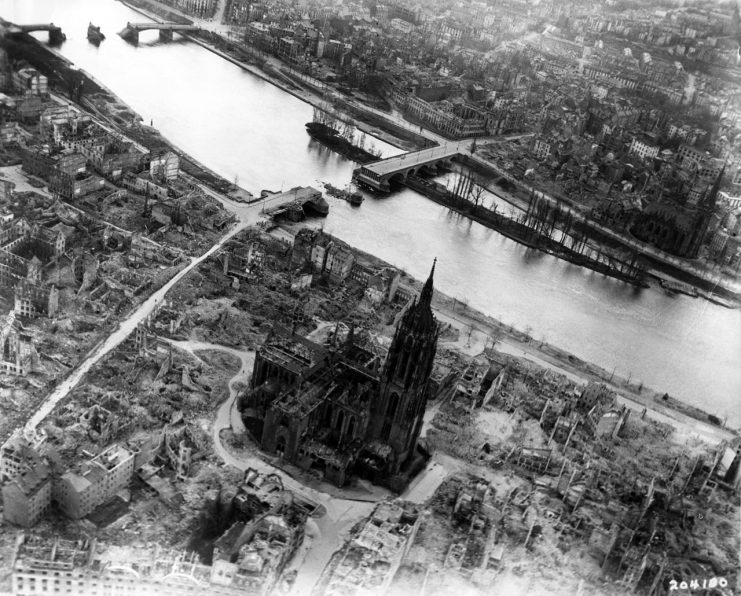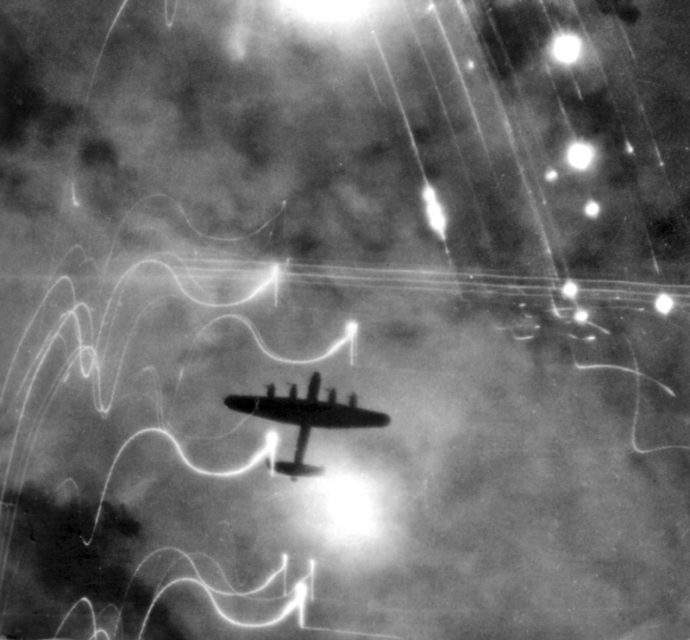WW2 Bomb: Germany still suffers echoes of its dark Nazi past 80 years ago, when Adolf Hitler led the country to war and created a national shame that citizens grapple with even today.
But sometimes the aftereffects of World War II are literal, as was the one that occurred on Sunday, June 23, during the night, near Limburg, a town in central Germany. At about 4 a.m., something shook the ground that folks assumed was a minor earthquake.
A powerful blast had reverberated near the community, but folks soon realized it was not an earthquake at all – it was a World War II bomb that had suddenly detonated. Fortunately, because the bomb exploded in a corn field, no one was injured.
It created a massive crater that was four metres deep and well over 30 feet wide. Initially, police were reluctant to suggest it was a bomb, but once examined by experts, it was soon confirmed that it was yet another vestige of the brutal hammering the Allies rained down on Germany during the conflict.

This was hardly the first time Germany was forced to bring day-to-day activities to a halt to cope with dormant, World War II Allied bombs. Unexploded ammunition is, if not commonplace, certainly frequent all over the country. The bombs were dropped by British and American forces all over cities and the countryside.
In August, 2018, for example, almost 19,000 citizens were evacuated from Ludwigshafen when a construction crew found a bomb that had been dropped by U.S. forces. In 2017, Frankfurt officials were forced to evacuate 70,000 people when a bomb weighing almost 1.5 tonnes was found near the city center, close to Goethe University.
Experts believed it could have wiped out dozens of city streets and hundreds, if not thousands of people had it exploded.
It was nicknamed “blockbuster” because of its immense size and power. In spite of what seems like enormous risk, police didn’t evacuate immediately, preferring to wait until they had a calm, orderly plan in place for the movement of so many from their homes and businesses.
Two other bombs were found in 2017; 20,000 people were evacuated from Koblenz that same August, and in May, 50,000 were forced to leave their homes in Hanover because three British bombs were discovered, again by construction crews.

In Many, 2015, 20,000 were forced from their homes in Cologne because of Allied bombs. It seems that often, in Germany, when land is excavated, vintage bombs are found. And as Germany continues to build more and more homes, businesses and other developments, the risk of uncovering a bomb increases.
That isn’t surprising, really, as the Allies dropped 2.7 million tonnes of bombs during the war, and approximately half fell on German soil.
Because their time mechanisms and fuses occasionally failed, the bombs would land and eventually be covered by debris from bombs that did explode. Even 75 years after D-Day, more than 80 years after the war began in 1939, Germany still uncovers 2,000 tonnes of bombs each year.
The issue is so common and widespread, in fact, that there is a German police squad dedicated entirely to diffusing World War II bombs and other ammunition. They also find artillery shells and even German anti-tank mines, and officials say the technicians are sent out on a case approximately every two weeks.
Even so, the situation is better than it was in the immediate post-war years, when dozens of police squad members died trying to diffuse ammunition and bombs, as did hundreds of civilians.
Another Story From Us: Lost Bombs, Crashed Aircraft and Missing Submarines: US Military Nuclear Near Misses.
Racing to the scene of a bomb found is still not for the faint of heart, but clearly Germany is trying to cope with the literal fallout of World War II in the safest way possible – for civilians, and for the men who take their lives in their hands when they try to diffuse Allied bombs.
